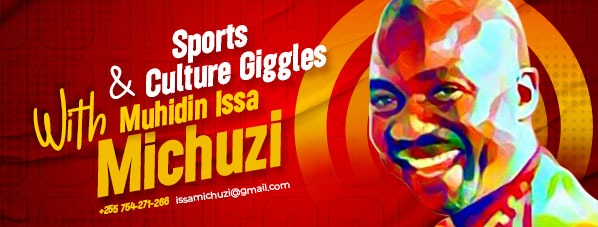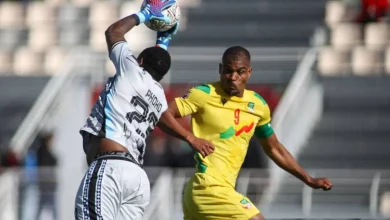Tanzania’s forgotten finish line: From Bayi to Simbu, where did we lose the plot?

DAR ES SALAAM: THERE are nations that take the word “victory” and build cathedrals around it. There are others that hear the sound of triumph and immediately reach for the brass band, the fireworks and at least one public holiday.
And then there is Tanzania, good old Tanzania, Bongoland if you may.
Here is where Alphonce Felix Simbu crossed the marathon finish line in Tokyo, won us our very first gold at the World Athletics Championships.
And the best we could manage was the equivalent of a yawn and a reminder that the florists at Namanga close early. That is why there were no flowers at the airport!
You would think this was a nation starved of joy, desperate for something—anything! —to shout about.
But no, the real headline on the day Simbu turned the world on its head was Manchester United’s first win of the season, complete with studio panels debating whether Marcus Rashford had rediscovered his first touch.
As if Old Trafford’s midfield balance somehow puts ugali on our tables or pays off our TRA bills.
And yet, we really did it.
Tanzania, a country that has for decades flirted with athletics glory but somehow never sealed the deal, finally brought home the big one.
Simbu ran through the streets of Tokyo like a man possessed, like a man chased by every boda boda rider he has ever underpaid, like a man who decided that history was not going to pass him by.
And he won.
And we, bless our collective socks, reacted as if he had merely renewed his driving licence.
No sirens, no schoolchildren rehearsing new patriotic chants, no brass band polishing its trumpets.
Instead, seven “Wachambuzi” (pundits) all shouted over each other, one cracked a joke and everyone moved briskly back to Yanga’s pressing game or Simba’s coaching carousel.
We must ask ourselves: How does a nation repeatedly lose the plot in such spectacular fashion? Because this is not the first time. Far from it.
Simbu is simply the latest in a long, illustrious line of Tanzanian athletes who have taken the world by the scruff of the neck, only for us to pat them politely on the head and then forget them by teatime.
Our national witch doctor, if indeed one still exists, must either be terminally ill or have long ago been buried without ceremony.
Why? Because no nation so blessed can squander so much luck and so many opportunities without a supernatural explanation.
Take Filbert Bayi, for instance, the man who in Christchurch in 1974 treated the 1,500 metres not as a race but as a coup d’état.
Forget the cautious tactical pacing beloved of European runners, Bayi went straight to the front and bolted like a man late for a wedding.
He smashed the world record in 3 minutes 32 seconds, ran like a passport was at stake and declared to the world that Tanzania was here to win, not just to fill lanes.
Even today, grey-haired athletics nerds grow misty-eyed at the memory, speaking of that race the way men speak of their first kiss.
And yet ask your average Tanzanian under thirty who Bayi is, and you’ll be told it’s either a WhatsApp group admin or a new Mwendokasi bus route.
After Bayi came Gidamis Shahanga, a long-distance marvel whose stride was as endless as a Bunge speech.
He ran with rhythm, with elegance, with a poetry that should have been taught in schools.
Today, mention his name in a bar and you’ll be asked whether you mean a new brand of bottled water.
Then Juma Ikangaa, the indomitable marathoner who stormed Boston and New York with grit so ferocious that crowds rose to their feet not out of courtesy but awe.
He never quite bagged Boston, but he won Fukuoka three times and carved his name deep in marathon history.
To this day, Boston remembers him better than Dar.
Add Suleiman Mjaya Nyambui, who brought home silver from Moscow.
Add Samson Ramadhani, who grabbed Commonwealth gold in Melbourne in 2006.
Add a dozen others whose names now gather dust like cassette tapes at Kariakoo.
And what did we do? A polite handshake, a brief speech, perhaps a lukewarm Fanta at Ikulu and then silence.
No statues, no schools named in their honour, no proper integration into our national curriculum.
They are not in our textbooks, not in our morning assemblies, not even in the lips of our “beloved” wachambuzi.
These tireless armchair experts can debate Arsenal’s midfield for an hour, then devote another to Manchester United’s “resurgence” (read: A scrappy one-nil).
To be followed by a lively analysis of whether Aucho was wise to follow Gamondi to Singida Black Stars.
By the time they mention Simbu, the energy has fizzled, and someone cracks a joke about a “jamaa mkimbiza upepo” winning a “ka-goldi”.
Cue guffaws and back to Premier League gossip.
Picture the scene in the studio that night:
Pundit One: “Arsenal’s defence catastrophic. Saliba needs to tighten up.”
Pundit Two: “United have rediscovered their DNA! Back to the Ferguson era, lads.”
Pundit Three: “Yanga’s midfield balance, gentlemen, is still better than Simba’s.”
Moderator: “Quickly, before we close—apparently Alphonce Simbu won something somewhere in Tokyo?”
Pundit Four: “Oh yes, ka-goldi ka marathon, jamaa mkimbiza upepo, congrats or whatever.”
Entire Panel: (uproarious laughter, slapping the table) “Hahaha! Anyway, can Hemed Morocco survive till December?”
And that, dear reader, is how a nation loses history in real time.
Meanwhile, Botswana, bless their foresight, declared a public holiday when their relay team stunned the USA to win gold in Tokyo.
Yes, a whole day off. Offices shut, banks closed, children singing relay songs.
Their president even called the athletes “our new natural diamonds.”
Meanwhile in Tanzania, our own world champion landed at Julius Nyerere International Airport last Tuesday, quietly.
He was greeted by a handful of officials who looked as if they had wandered into Terminal Three by mistake.
A few weary photographers, several online media microphones and the eternal chorus of taxi drivers fighting with Bolt.
The florists at Namanga were asleep, which apparently is excuse enough to cancel a boutique order for the hero’s welcome.
No marching band, no ngoma troupe, not even a misspelled banner.
Our National Sports Council, whose job description ought to include a pinch of imagination, instead waited obediently for “orders from above.”
If those orders don’t arrive, nobody moves. If Mama doesn’t sneeze, nobody fetches the tissue.
It was only after embarrassment had fermented for several days that goverment remembered itself and announced an “official reception party” for Simbu on (last) Friday.
A fine idea, but it is rather like throwing a birthday party three weeks after the cake has gone stale and the guests have left.
Heroes deserve immediacy, not bureaucratic scheduling.
If Eliud Kipchoge so much as sneezes, Nairobi shuts down with parades.
If Simbu wins a historic gold medal, Dar yawns, scratches its head and debates who is going to be Simba SC’s new coach.
And this, dear reader, is the real national tragedy.
Not that we lack heroes, but that we forget them. We bury them beneath derby replays and Premier League highlights.
We treat them as inconvenient episodes rather than cornerstones of our identity.
By neglecting them, we rob our children of role models. A child in Tabora or Moshi should know Bayi as well as Messi, Ikangaa as well as Ronaldo.
They should learn that Tanzanians have conquered not only Kilimanjaro but also the world’s toughest tracks.
Instead, our children grow up with the corrosive message that ambition is fleeting, recognition temporary and greatness is something to be imported from abroad.
And what of Simbu’s medal? If we are not careful, it will gather dust in a ministry drawer while our pundits analyse Arteta’s pressing system.
Unless we break the cycle, we will clap politely, shake his hand and forget.
Or worse, we’ll promote him one rank in the army and call it a day.
But this was not just Simbu’s victory. It was Tanzania’s.
It was a golden chance to rebrand ourselves as the land not only of Kilimanjaro, Serengeti and Zanzibar but of Simbu too.
Tourism campaigns spend millions to craft slogans less powerful than one marathon gold.
And yet we let it slip through our fingers like a leaky bucket.
We should be stamping his face on postage stamps, naming streets after him, renaming stadium stands after our sporting heroes instead of persisting with dreary labels like VIP A and VIP B – and Mzunguko.
Imagine the Filbert Bayi Stand, the Juma Ikangaa Terrace, the Simbu Section. At least then our heroes would live on in stone and ticket stubs, if not in BMT’s imagination.
But alas, this is Tanzania, where serious business often requires divine intervention or a note signed in triplicate by three ministries and a regional commissioner.
Which brings us back to the witch doctor.
Ours is either terminally sick or has died quietly in his hut, because surely no country could squander so many miracles without supernatural negligence.
How else do you explain our ability to run ourselves into history, then forget to celebrate it?
So here we are. Alphonce Simbu, golden boy of Tokyo, our first world champion in athletics, has returned to Dar es Salaam draped not in glory but in bureaucratic slumber.
The reception was so uninspired it could have been scripted by the Ministry of Forgetfulness.
And until we learn to do better, until we learn to celebrate loudly and unapologetically, we risk running this race, winning it and then pretending we never left the starting line.
Heroes don’t arrive every day. When one does, the least we can do is throw a party loud enough for the neighbours to complain.
Otherwise, we may as well donate our medals to Botswana for safekeeping.





